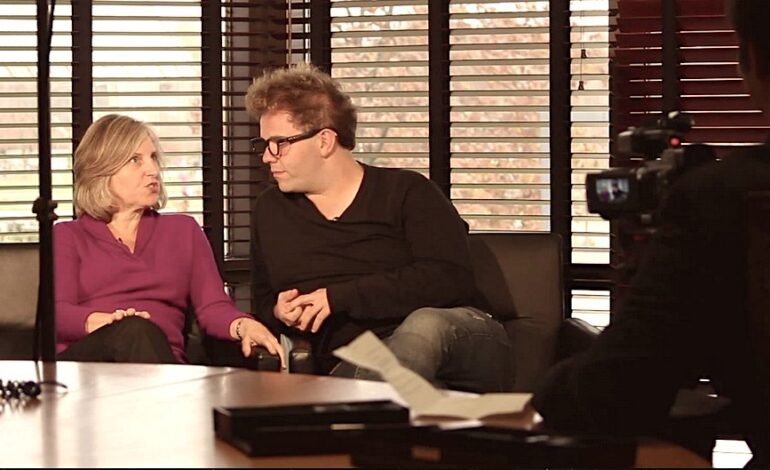David Letterman Dings ABC for Pausing Kimmel Over Charlie Kirk Fallout: A Barking Truth in the Era of Politicized News

Kai Montgomery here, your grumpy guru with the receipts, ready to spill the tea on a plot twist nobody saw coming but everyone felt simmering backstage: David Letterman just weighed in on ABC pulling Jimmy Kimmel Live! after Kimmel’s Tuesday monologue about Charlie Kirk’s murder, and yes, it’s messy, loud, and very much about how far networks will go to dodge a political firestorm. Look, I don’t want to be the one to say it, but here we are. This isn’t just a late-night kerfuffle; it’s a spotlight on how media power, corporate pressure, and political heat melt into a single, fragile ecosystem that fans pretend to understand while advertisers fret in the wings.
Let’s set the scene with the bones of the saga. ABC abruptly announced that Jimmy Kimmel Live! would be pre-empted indefinitely on Wednesday night, just hours before Kimmel was meant to take the stage for his nightly show. The trigger, per ABC and Nexstar Media Group, sprang from a Monday night monologue in which Kimmel commented on the murder of conservative activist Charlie Kirk during an incident at Utah Valley University. The 31-year-old Kirk was shot dead on September 10, with Tyler Robinson, a Turning Point USA founder follower, arrested for the slaying. Kimmel’s barb, framed as criticism of the political climate that surrounds Kirk and his supporters, was described by Nexstar as crossing a line, prompting a preemption and replacement programming in ABC affiliate markets.
The reaction inside Hollywood was immediate and pointed. Letterman, speaking at the 2025 Atlantic Festival and quoting Variety, described the move as “misery” and warned that this pattern signals a broader trend: “This is managed media. And it’s no good. It’s silly. It’s ridiculous. And you can’t go around firing somebody because you’re fearful or trying to suck up to an authoritarian criminal administration in the Oval Office.” In plain terms, he suggested that punishing a late-night host for talking about current events is a betrayal of the very concept of free-wheeling televised commentary. He even floated the wild, if not slightly paranoid, idea that the president could be pulling strings behind the scenes, implying that Kimmel’s suspension signals a creeping interference of the White House in late-night talk show content. Letterman’s commentary wasn’t just provocative; he tossed in a light, snarky aside about Kimmel’s well-being, joking that the host was “up in bed, taking nourishment” while the dust settled.
The broader context makes the situation feel even murkier. The media ecosystem is built on a delicate balance between provocative humor and the risk of inciting political retaliation. NBC and CBS era-friendly talk shows often find themselves navigating similar tensions, but the current moment — with a sitting president and a publicly traded media conglomerate in potential alignment — feels different. Letterman’s stance leans into the long-standing tradition of late-night as a counterweight to political noise, arguing that shutting down the dialogue when a host remarks on controversial figures does not serve the public discourse. He even argues that the “institution of the president of the United States” should be bigger than a TV show, a bold assertion that reframes the incident as a test of whether entertainment can retain its own independent voice in a climate of fast-moving outrage and corporate risk.
On the ground, Kimmel’s camp is said to be furious. An insider described him as “absolutely f–king livid,” with reports that he’s exploring contract options rather than simply stepping back. The corporate response — a preemption with Nexstar asserting their objection to Kimmel’s comments — underscores a growing pattern where networks are less willing to host controversial linguistic gymnastics that could spark advertiser boycotts or political blowback. The crash-and-burn nature of this incident, combined with Letterman’s public, candid critique, crystallizes a moment in late-night history where satire and scrutiny collide with corporate caution and political theater.
So what does this all mean for the future of late-night in a world where every joke seems to come with a risk assessment? That’s the cliffhanger, my friends. Will ABC and its sibling networks retreat further into safe, apolitical zones, or will they eventually restore a more freewheeling format that tolerates sharp political commentary? The ball, as they say, is in the air.
Sources: Celebrity Storm and New York Post, Variety
Attribution: File:Jake Sasseville and Donna Fenn at the David Letterman Lecture Series.jpg — NYCmainah (CC BY-SA 3.0) (OV)
Attribution: File:Jake Sasseville and Donna Fenn at the David Letterman Lecture Series.jpg — NYCmainah (CC BY-SA 3.0) (OV)




